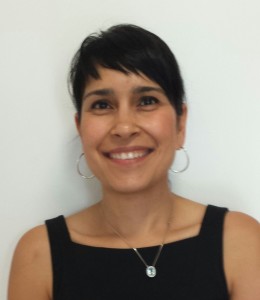By Parin Rafiei-Thompson
The devastation caused by Typhoon Haiyan in the Philippines has mobilised the international community in support of the local population. World Vision, together with many other NGOs, has initiated a relief program for the millions of people who lost their homes and need urgent food and medical supplies. Typhoon Haiyan has affected more than 13 million people, including five million children. With sustained winds up to 250km/h and gusts passing the 300km/h mark, Typhoon Haiyan is one of the most intense tropical storms on record. The damage is catastrophic, and aid workers are racing against time to deliver food, water and shelter. We should not forget that the reconstruction will be slow and great challenges will still need to be tackled after the spotlight moves away from this region.
Food security will be a major concern in the long term. The crops have been wiped out, dramatically reducing the availability of, and access to, food. The immediate response of the international community is to compensate food scarcity by distributing supplies to the population. However, it is important to remember that food production will be affected in the long term: the seawater flooding the fields has increased soil salinity and will likely result in poor yields in the coming years. This issue has often been overlooked and not adequately addressed in many past instances of less destructive cyclones, or in regions threatened by rising sea levels.
World Vision’s commitment towards communities goes beyond assistance and reconstruction in emergency situations and includes preventive programming. It is important to do advance planning and adopt preventive measures to mitigate the destructive power of tropical cyclones and other natural disasters. Disaster Risk Management (DRM) and Disaster Risk Reduction (DRR) are important areas of work for World Vision. DRM and DRR provide people with the tools and methods to minimise the impact of such destructive phenomena. The Food Security and Climate Change Unit (FSCC) focuses its work on communities that are identified as most vulnerable to climate-related events, and pacific region communities are one such example. Much of the pacific region is prone to recurring powerful storms that can present a serious threat to communities’ livelihoods. Small islands states such as Vanuatu and the Solomon Islands have been struck by cyclones 14 and 9 times respectively in the past 30 years [1], and they don’t have the financial resources to assist their populations recovering from damages and losses. While the importance of our intervention immediately after a natural disaster remains crucial, World Vision is now working to build community resilience to such weather extremes. One example is the Makira community resilience and livelihoods project in the Solomon Islands, where the team is supporting the local World Vision office in raising awareness of the risks connected with natural disasters and finding ways to adapt to the consequences of rising sea levels and other climate-related disasters. To reduce the risks, populations need to be prepared for these events and should identify resilience strategies, including appropriate farming practices adapted to climate change and natural disasters. This approach can save lives and improve the standards of living for the communities on their traditional land.
If you wish to help, you can donate now to the Typhoon Haiyan Appeal to help us assist the population of the Philippines. You can also support World Vision Australia’s work reducing future risks for vulnerable communities around the world.
[1] EM-DAT: The OFDA/CRED International Disaster Database, Université catholique de Louvain, Brussels, Belgium


Parin Rafiei-Thompson is Senior Strategic Advisor for the Food Security and Climate Change team at World Vision Australia.
Related Pages:
Typhoon Haiyan (World Vision Australia)
Typhoon Haiyan (World Vision International)
Related Stories:
Prevention is better than cure
Prime Minister of Solomon Islands praises World Vision
